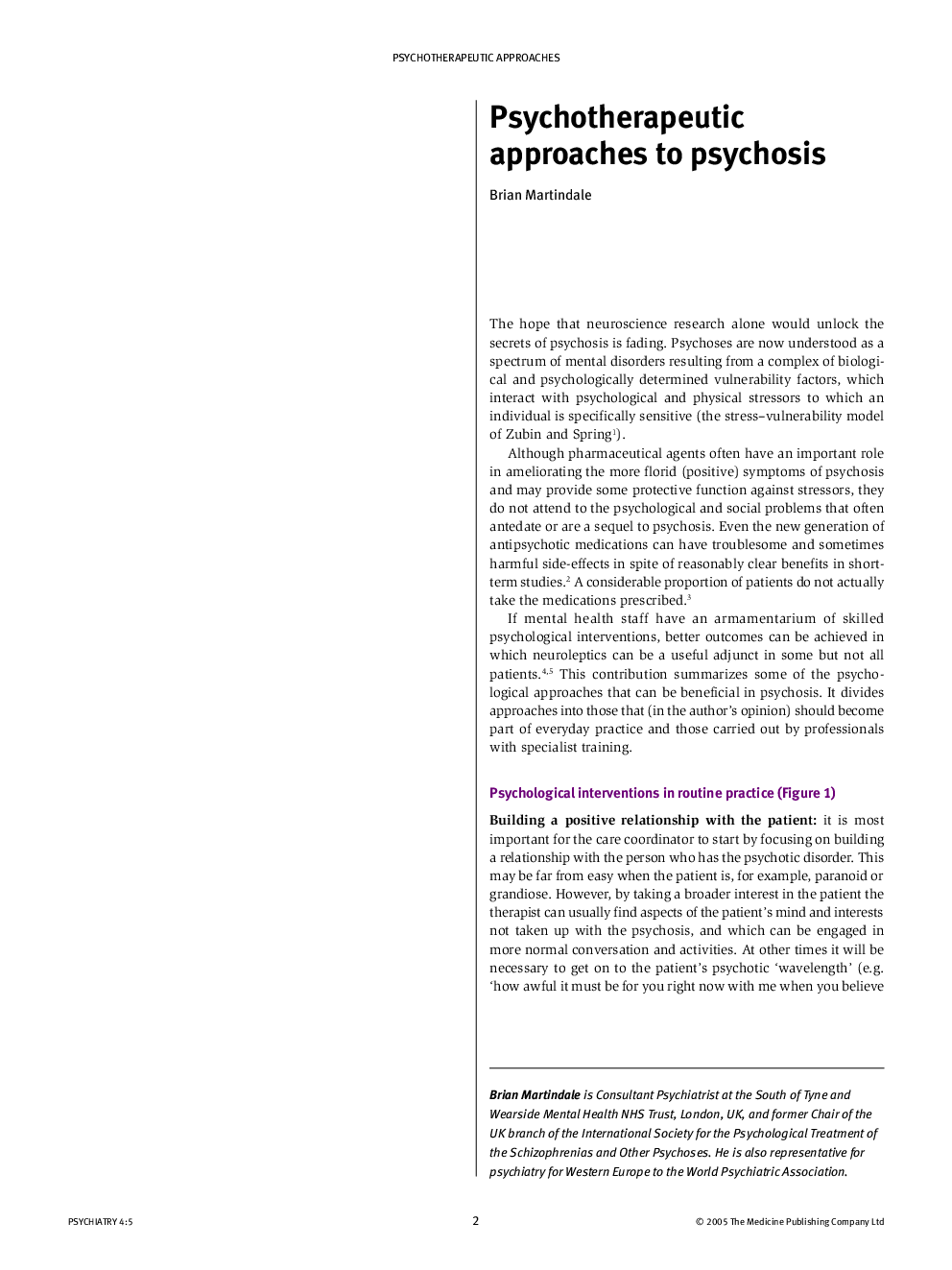| Article ID | Journal | Published Year | Pages | File Type |
|---|---|---|---|---|
| 9381754 | Psychiatry | 2005 | 5 Pages |
Abstract
There has been growing appreciation of the role that a range of psychological treatments have to play in the treatment of the psychoses. Pharmacological approaches usually assist in containment of the more florid psychotic symptoms but psychological approaches can be most useful in aiding the patient and the family in facilitating a fuller psychosocial recovery as well as themselves contributing to symptomatic improvement and reduction in relapse rates. This article describes both the common and distinguishing features of a range of important psychological therapies some of which should be part of everyday practice and some of which require more specialist training and made available to patients when needed. It emphasises the centrality of building durable relationships with the patient and his or her family or carer, the importance of identifying the stressful and protective factors that are relevant to each individual and tailoring the type of intervention according to the capacities and readiness of the patient (the need-adapted approach). The article outlines these according to setting (individual, group and family) and according to modality: psycho-dynamic, cognitive and systemic. Brief vignettes are given. The potential psychological impact of psychosis on professionals and their organisational functioning is acknowledged.
Keywords
Related Topics
Health Sciences
Medicine and Dentistry
Psychiatry and Mental Health
Authors
Brian Martindale,
